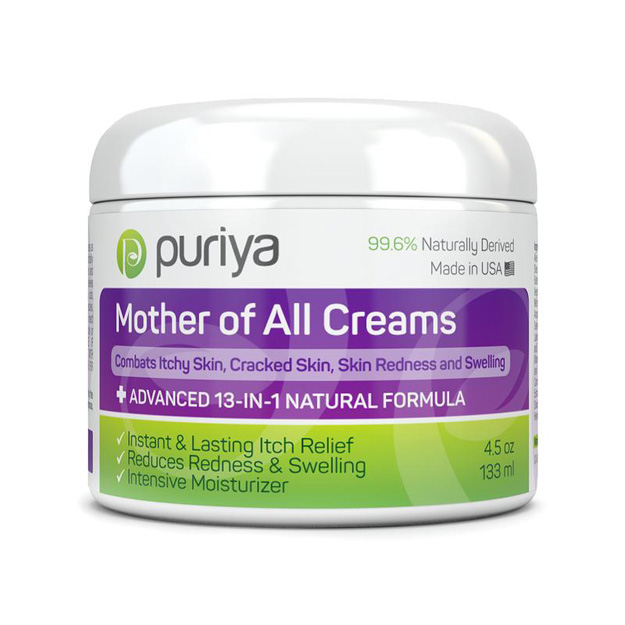

Dermatitis is an all too common skin ailment and it’s extremely unpleasant for those afflicted by it. One of the many ways to treat this annoying disease is with topical skin creams. Unfortunately, if you’re looking to purchase dermatitis cream over the counter (OTC), the options aren’t great.
A Little Red? – Advice on Getting Rid of Your Dermatitis
In this article:
- The Big Bad Wolf
- Defining Corticosteroids
- The Evil of “The Best Over the Counter Cream for Dermatitis”
- Long-Term Effects of Over The Counter Dermatitis Cream
- Over the River and Through the Woods
The Big Bad Wolf
What are we to do?
In this article, I’m going to address the most common reason OTC options come up short and suggest an alternative path.
The omnipresent evil in a majority of the dermatitis cream over the counter is the dreaded corticosteroid.
Defining Corticosteroids

To quickly borrow a definition from Wikipedia, corticosteroids are “a class of steroid hormones that are produced in the adrenal cortex of vertebrates, as well as the synthetic analogues of these hormones.”
Wow! I bet you’re shaking with just how clear and helpful that definition was. Truly revolutionary. Now that we’ve stuffed our mouths full of science jargon, let’s break it down:
For starters, our adrenal gland naturally produces these corticosteroids. This is largely irrelevant to us. The ones that our brain hath bequeathed to us from on high are not a problem whatsoever. In fact, even the synthetic variant can be helpful when it’s used to treat deficiencies in a person’s natural production.
The Evil of “The Best Over the Counter Cream for Dermatitis”
So…. why are they evil, exactly?
My dear reader, I couldn’t have written a better question myself! I must admit, I was probably being a little hyperbolic when I chose to literally demonize corticosteroids. However, they can have some pretty harmful effects:
They’ll really weaken the skin with long-term use. What your epidermis thrives on, what keeps that outer layer of defense so shiny and wonderful, is proper hydration.
What’s the problem?
Corticosteroids fail to lock in the much-needed moisture and even dry out the skin. Skin cells that aren’t filled with water won’t be as plump. This will leave cracks in your skin—cracks that bacteria exploit. This can lead to infection.
Long-Term Effects of Over The Counter Dermatitis Cream
It gets worse:
Long-term use can also lead to “TSA” or “topical steroid addiction.” This is the unfortunate result of dermatitis becoming resistant to the corticosteroids. It will spread with greater ferocity across the body and require even more and stronger doses of the corticosteroids to achieve the same results.
Can you say ‘vicious cycle’? It also begs the question: how long does it take before it stops working altogether?
Over the River and Through the Woods
You’re probably thinking to yourself: Over the counter dermatitis cream can be a double-edged sword, and it doesn’t magically make dermatitis go away.
Sad, but true. While I’m not offering you any magical spells to cure you today, I can certainly offer you the next best thing.
Puriya has created a compelling dermatitis cream over the counter formula that pulls its best stuff right from nature. It employs age-old treatments that have stood the test of time and mixes them with the amazing scientific progress we have made when it comes to producing even more intense and beneficial concentrations of nature’s goodness. The result is a cream that hydrates, nourishes, and repairs your skin.
Want an alternative to your every day over the counter dermatitis cream? Check out this review by Kelly’s Thrifty Finds:
No longer must you serve at the beck and call of your dermatitis’ itch. Set yourself free from purchasing dermatitis cream over the counter. Experience nature’s magic with Puriya!
Have you tried our Mother Of All Creams for your dermatitis? Let us know about your mileage in the comments section.
Up Next: Psoriasis Creams – Scaling Back the Scales
Editor’s Note: This article was originally published on April 20, 2017. It has been updated for accuracy and relevancy.

